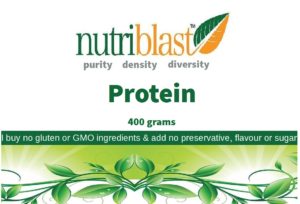https://www.healthelicious.com.au/NutriBlast-Protein-Blend.html

This site was one of many I looked at to obtain data on what to include in my new protein blend. It has some useful data on digestive enzymes that may be of assistance to you in areas other than protein digestion so I am including it here for your reference. The article is well-referenced and concise. Here are some extracts from it that relate to protein absorption.
Many organs work together to make up your digestive system.
These organs take the food and liquids you eat and break them down into simpler forms, such as proteins, carbs, fats and vitamins. The nutrients are then transported across the small intestine and into the bloodstream, where they provide energy for growth and repair.
Digestive enzymes are necessary for this process, as they break down molecules like fats, proteins and carbs into even smaller molecules that can be easily absorbed.
There are three main types of digestive enzymes:
Proteases: Break down protein into small peptides and amino acids
Lipases: Break down fat into three fatty acids plus a glycerol molecule
Amylases: Break down carbs like starch into simple sugars
Enzymes are also made in the small intestine, including lactase, maltase and sucrase.
If the body is unable to make enough digestive enzymes, food molecules cannot be digested properly. This can lead to digestive disorders like lactose intolerance.
Thus, eating foods that are high in natural digestive enzymes can help improve digestion.
Here are 12 foods that contain natural digestive enzymes.
1. Pineapple
Pineapples are a delicious tropical fruit rich in digestive enzymes.
In particular, pineapples contain a group of digestive enzymes called bromelain.
These enzymes are proteases, which break down protein into its building blocks, including amino acids. This aids the digestion and absorption of proteins.
Bromelain can be purchased in powdered form to help tenderize tough meats. It’s also widely available as a health supplement to help people who struggle to digest proteins.
A study on people with pancreatic insufficiency, a condition in which the pancreas cannot make enough digestive enzymes, found that taking bromelain combined with a pancreatic enzyme supplement improved digestion more than the enzyme supplement alone.
2. Papaya
Papaya or pawpaw is another tropical fruit that is rich in digestive enzymes.
Like pineapples, papayas also contain proteases that help digest proteins. However, they contain a different group of proteases known as papain.
Papain is also available as a meat tenderizer and digestive supplement.
Studies have shown that taking a papaya-based formula may help ease digestive symptoms of IBS, such as constipation and bloating.
If you want to eat papayas, just make sure to eat them ripe and uncooked, as heat exposure can destroy their digestive enzymes.
Also, unripe or semi-ripe papayas can be dangerous for pregnant women, as it may stimulate contractions.
11. Kiwifruit
The kiwifruit is an edible berry that is often recommended to ease digestion.
It’s a great source of digestive enzymes, particularly a protease called actinidain. This enzyme helps digest proteins and is commercially used to tenderize tough meats.
Additionally, kiwifruit contains many other enzymes that help ripen the fruit.
Scientists believe actinidain is one reason why kiwifruits seem to aid digestion.
An animal study found that adding kiwifruit to the diet improved the digestion of beef, gluten and soy protein isolates in the stomach. This was thought to be due to its actinidain content.
Another animal study analyzed the effects of actinidain on digestion. It fed some animals kiwifruit with active actinidain and other animals kiwifruit without active actinidain.
Results showed that animals fed kiwifruit with active actinidain digested meat more efficiently. The meat also moved faster through the stomach.
Many human-based studies have also found that kiwifruit aids digestion, reduces bloating and helps relieve constipation.
12. Ginger
Ginger has been a part of cooking and traditional medicine for thousands of years.
Some of ginger’s impressive health benefits may be attributed to its digestive enzymes.
Ginger contains the protease zingibain, which digests proteins into their building blocks. Zingibain is used commercially to make ginger milk curd, a popular Chinese dessert.
Unlike other proteases, it’s not often used to tenderize meats, as it has a short shelf life.
Food sitting in the stomach for too long is often thought to be the cause of indigestion.
Studies in healthy adults and those with indigestion show that ginger helped food move faster through the stomach by promoting contractions.
Animal studies have also shown that spices, including ginger, helped increase the body’s own production of digestive enzymes like amylases and lipases.
What’s more, ginger appears to be a promising treatment for nausea and vomiting.
https://www.healthline.com/nutrition/natural-digestive-enzymes
